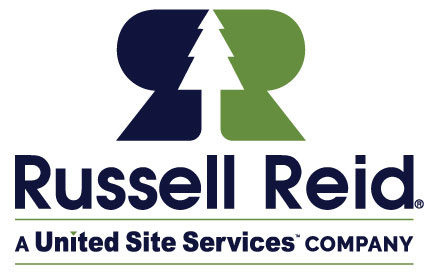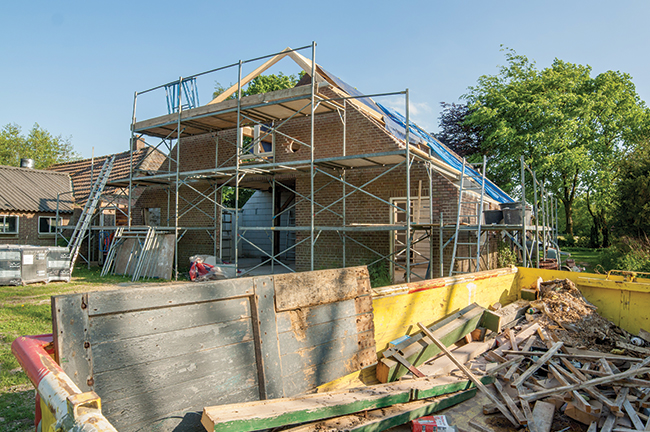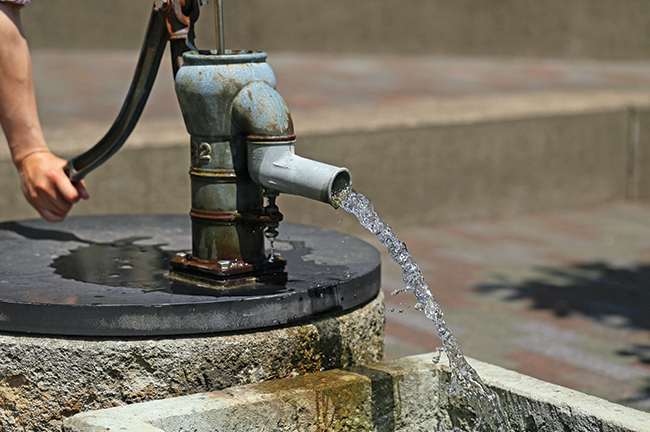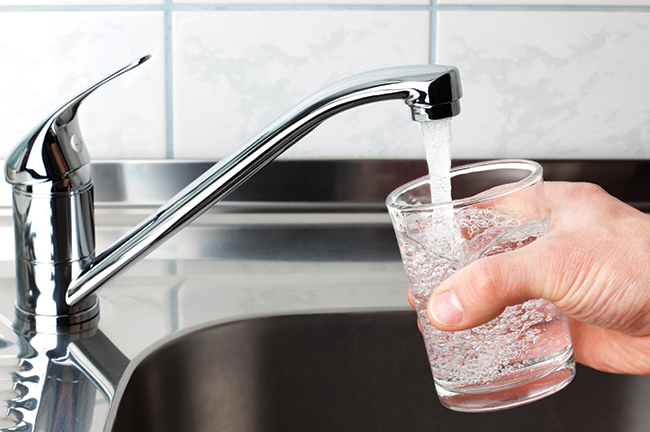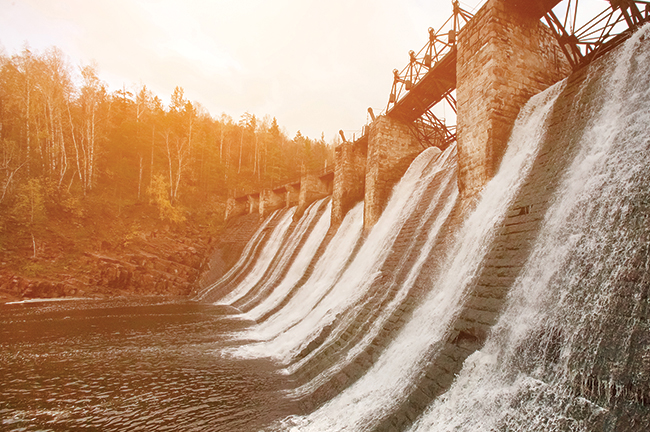How a Dumpster Rental Can Make Your Home Renovation or Clean Up Project Easier
Many home projects are started without planning for proper debris disposal. Usually, bulk waste is carted out to the curb in the hopes that one day the municipality will remove these items and dispose of them at the local landfill or disposal facility. While each municipality is different, many have specific regulations regarding the disposal of large household or construction debris. Once you understand the regulations, it may be a while before the items are actually picked up. They will reside on the curb in front of your home, attracting vermin and posing a safety threat to local children until the municipal clean up team can arrange to pick it all up.
Another option is to collect the bulk waste and cart it off in your car to your local disposal facility, one load at a time. Some municipalities may accept this waste and others may not. Some may charge a fee for disposal. Meanwhile, you never realize how much waste you have until you try to fit it all in your car.
For this reason, many people choose to rent a Russell Reid dumpster for their home renovation or clean-up projects. The dumpster can be placed in a convenient location and will hold tons of debris, keeping it safe from local children or curious critters. When your project is complete, Russell Reid will pick up the container immediately and dispose of the contents for you at an approved disposal facility.
Some popular uses for Russell Reid dumpsters include:
DIY or Home Renovation Projects: Roll Off dumpsters are a safe and convenient way to collect debris from any home renovation or do-it-yourself project. Collect lumber or wood scraps, windows, drywall, flooring, old doors, fixtures, pipes, siding or any other type of construction or demolition debris. The items can be placed safely inside a dumpster without having to worry about anyone or anything getting injured by old rusty nails, sharp metal edges or splintered wood.
Landscaping or Yard Waste: Spring or fall yard clean-up activities can generate a large amount of waste. For convenient disposal, use a dumpster to dispose of debris from pruning, trimming, mowing, shrub removal, stone and brick projects, sod, tree stumps, etc. Debris is more effectively contained inside the dumpster and removed before the wind can carry it back to your yard.
Attic, Garage or Whole House Clean Out: A dumpster can help you complete your household clean up job quicker by placing it closer to the area to be cleaned. It also eliminates the eyesore and safety hazard created when piling the bulky items & trash up at the curb. These dumpsters can be filled with old furniture, clothing, broken toys, old mattresses, car and bike parts, carpeting, attic and garage debris or any other type of general household trash.
Some important factors to consider when renting a dumpster for household trash:
Hazardous items or items containing hazardous materials should not be disposed of in a dumpster. These include hazardous chemicals, used motor oil, paints & solvents, tires, fluorescent lights, lead acid or rechargeable batteries, propane tanks, etc. Contact us if you are unsure of any item.
As of 2011, televisions, computers, laptops and monitors are banned from the garbage in accordance with New Jersey’s Electronic Waste Management Act (Act).
If you want the dumpster placed on your driveway, you may want to lay down several pieces of plywood to protect the area from any damage.
For more information or to schedule your Russell Reid dumpster rental, please contact us today!
New Jersey Septic Tank Pumping Helps Reduce the Risk of Well Water Contamination
For homeowners in New Jersey, septic system maintenance should be as much a part of normal home maintenance as raking leaves in the fall. Unfortunately, while it is obvious when your lawn needs a cleanup, it’s much easier to forget about septic tank pumping. As a result, not all NJ septic system owners have their tank pumped as often as they should. Unlike other household tasks, if septic service is neglected there can be serious repercussions, especially for those who also have well water on their property.
Health Risks of Neglecting Septic Maintenance in New Jersey
It is important to note that having both a septic system and well water at your home is perfectly safe, as long as both systems are properly maintained. However, when regular septic tank pumping is not performed, well water contamination can occur. Contamination not only changes the look and taste of your water but it can also be a source of disease and other health problems. These issues can range from stomach problems to cholera and hepatitis A. If an elderly person, pregnant woman or small child lives in your home, this is especially dangerous since they are more susceptible to disease. Water contaminated by a septic system can cause a potentially fatal condition unique to infants called methemoglobinemia, also known as blue baby syndrome. This condition hinders the bloods ability to carry oxygen, causing the skin to take on bluish tint and earning the disease its unpleasant nickname.
How Septic Systems Contaminate Wells
The health problems are serious but they can easily be avoided. The best way to prevent this kind of contamination is to make sure you have routine septic pumping services performed by Russell Reid. For most people, this means getting serviced once every two to five years based on the size of your tank and how many people are using it regularly. If a septic tank is not pumped out often enough, solids collect and take up space in the tank. When the tank is too full, wastewater is forced out before solids in the water have time to settle to the bottom. When wastewater is pushed out before it is fully filtered, the solids that remain in the water are pushed out with it. This can cause contamination in two ways. The water and waste particles can find their way directly into the well or it can clog the drain field. Drain fields are not meant to handle particles in water over a certain size, and if materials that are too large get in there, it will clog. Every time water goes through the drain field in the future, it will wash over these waste solids, contaminating water headed for the well. It is also possible that the wastewater and the stowaway waste particles may find a way to enter the well directly.
When a well and septic system are both present, regular septic tank maintenance is crucial and the consequences from putting off this task can be harmful. However, if you are diligent about regular septic pumping there is no reason your septic and well can’t coexist for many years without any negative effects on you or your family. If you are unsure of how often our tank should be pumped, feel free to contact us for more information.
Protecting Our Water Quality
The following are some things that we can all do to help protect our water quality. For more information, visit the NJ Department of Environmental Protection, Division of Water Quality http://www.state.nj.us/dep/dwq/
•Pick up after your pet. Properly dispose of pet waste into the trash or toilet. Animal waste contains coliform bacteria, which is harmful to our health and, when washed into swimming waters, can result in beach closings.
•Use natural pesticides such as milky spore and nematodes wherever possible. If you must use chemical pesticides, use them sparingly and in targeted areas.
•Maintain your septic system. Improperly maintained or failing septic systems will cause untreated wastewater to be discharged into the environment.
•Reduce, reuse and recycle materials whenever possible to create less waste, which could end up on our streets and contribute to stormwater pollution.
•Pick up trash and litter and put it in the trash. Keep trash cans closed to prevent trash from scattering. NEVER throw litter and debris directly into storm drains. Such debris can wash into waterways and onto beaches, and clogged drains can cause street flooding and traffic congestion.
•Always put your cigarette butts in ashtrays or garbage cans, do not throw them on to the ground or out of your car window. Proper disposal will help keep our waterways clean and minimize the risk of fires.
•Shop for nonhazardous, biodegradable and phosphorous-free household cleaning products.
•If you use water-based paints, rinse paint brushes in the sink. If you use oil-based paints, you can filter and reuse the thinner used to clean brushes. Dispose of thinner through a local household hazardous waste program. Visit http://www.state.nj.us/dep/dshw/rrtp/hhwcps.htm for a list of local household hazardous waste facilities.
•Sweep up dirt and debris and discard on your lawn or in the trash. Hosing off pavement washes pollutants into storm drains, which may lead to local creeks, bays and the ocean.
•Rather than wash your car in your driveway, on the street or in your yard, take it to a local car wash. This not only conserves water but also eliminates the running off of harmful pollutants.
•Dispose of unwanted chemicals at a household hazardous waste collection center in your area. Never pour hazardous materials into the street, sewer or the storm drain. For more information, visit www.state.nj.us/dep/dshw/rrtp/hhwcps.htm.
•Eliminate or, at least, reduce the use of soaps and shampoos when using outdoor showers that drain to the street.
Wastewater as Renewable Energy
We are gradually moving from past eras where infectious diseases were transmitted by human waste to an age where that same waste is quickly becoming a great benefit to mankind. A little knowledge, a big plan, and some basic education about an unsavory topic is all we need to do the trick. Take the example of the Rwandan prison.
In 2005 Rwanda received the Ashden Award for its pioneering work and practical solution to the age old problem of disposing of human waste. Their answer: don’t get rid of it, use it. And use it they do. Here’s how.
The Rwandan prisons are notoriously overcrowded creating the risk of epidemic outbreaks of disease from contact with human waste. Rwandan engineers recognized that simply dumping this waste in the nearby river would likely cause terrible bouts of dysentery and other infectious diseases, and they came up with a solution. Namely, collect and convert the waste, and then use it as a renewable energy source. How? It’s simple. More or less.
Instead of dumping the effluent in the local river, they collect and process it in a “digester” that uses bacteria to ferment the scat and release methane gas. The methane gas is then captured and burned as fuel to heat the facilities, provide electricity, and help in cooking. The “anaerobic biodigester” regulates the levels of bacteria and what started out as an unsafe and unsanitary situation is now converted into a recycling opportunity saving hundreds of thousands of dollars.
The end product of the fermenting and filtering process is called “biogas,” and it is swiftly becoming part of the world economy. Biogas is used to power trains in Sweden, heat homes in Asia, and provide electricity in many communities throughout the world. Its best use seems to be to power internal combustion engines for the production of electricity and then use the exhaust from those same engines to provide heating.
At Russell Reid, we are excited about the prospect of turning wastewater into renewable energy. In a world where energy is becoming scarcer and more costly by the day, isn’t it about time we got back to thinking about basics?
